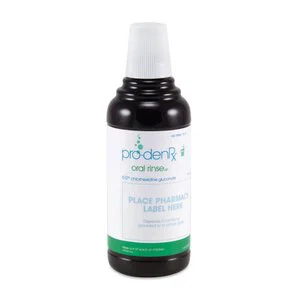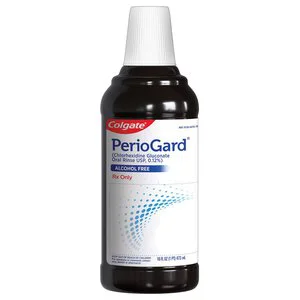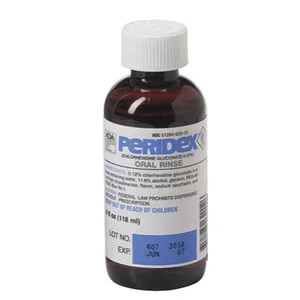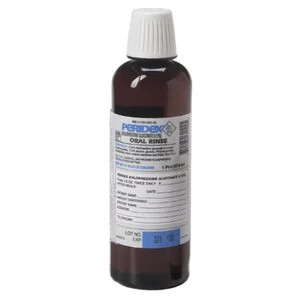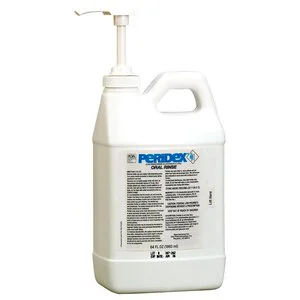Filter Products
Filter Products
Chlorhexidine Rinses
As low as
$6.55As low as
$11.76As low as
$38.98What is Chlorhexidine rinse, and how does it work?
Chlorhexidine rinse is an antimicrobial oral solution that controls plaque and gingivitis. It kills a wide range of bacteria in the mouth, reducing their growth and preventing the formation of dental plaque.
When should Chlorhexidine rinse be used?
Chlorhexidine rinse is often recommended to prevent infection in specific situations, such as after dental procedures like extractions or surgeries. It's also a short-term solution for managing gum disease or patients with compromised oral hygiene due to medical conditions. Prolonged use is generally not recommended due to potential side effects.
Are there any side effects of using Chlorhexidine rinse?
Yes, there are potential side effects. The most common side effect is tooth staining, which can be managed through professional cleanings and good oral hygiene practices. Some users might experience a temporary alteration in taste perception or a burning sensation in the mouth. Long-term use may lead to oral microbiota imbalances and the development of resistant strains of bacteria.
How is Chlorhexidine rinse used effectively?
To use Chlorhexidine rinse effectively, patients should follow these steps:
- Rinse with a small amount (about 10-15 ml) for about 30 seconds.
- Make sure to swish the solution around in the mouth, reaching all areas, including the gums and teeth.
- Spit out the solution after rinsing. Do not swallow it.
- It's generally advised to use Chlorhexidine rinse at a different time of day than regular toothpaste to avoid interactions that could reduce its effectiveness.
Can anyone use Chlorhexidine rinse?
While Chlorhexidine rinse is effective, it's not suitable for everyone. It's important to consult your dentist or healthcare professional before using it, especially if there is a history of allergies, sensitivities, or certain medical conditions. Pregnant or breastfeeding individuals should use it under professional guidance, and it's typically not recommended for children under a certain age.
Remember, Chlorhexidine rinse should be used as directed by your dentist or healthcare provider, and it's not a substitute for regular oral hygiene practices like brushing, flossing, and professional dental cleanings.

